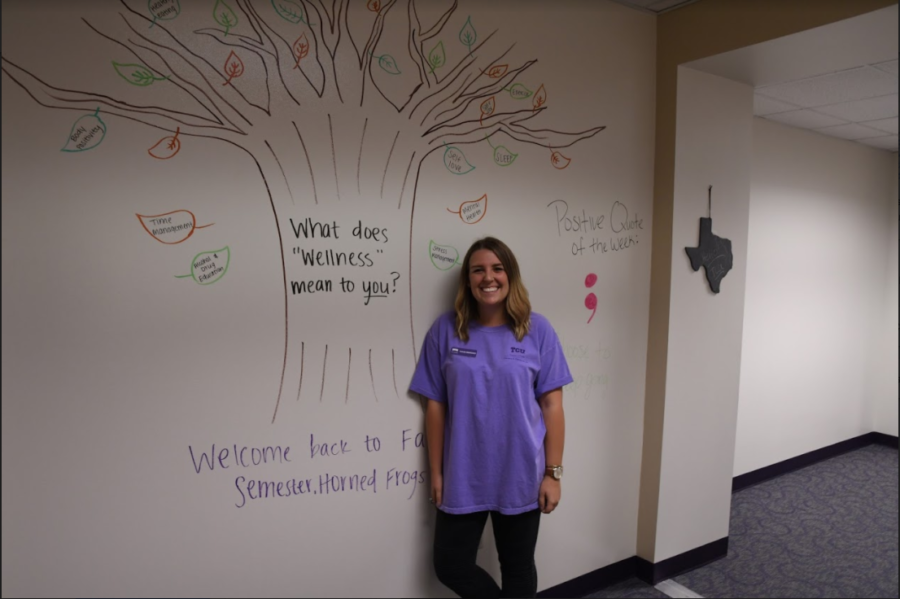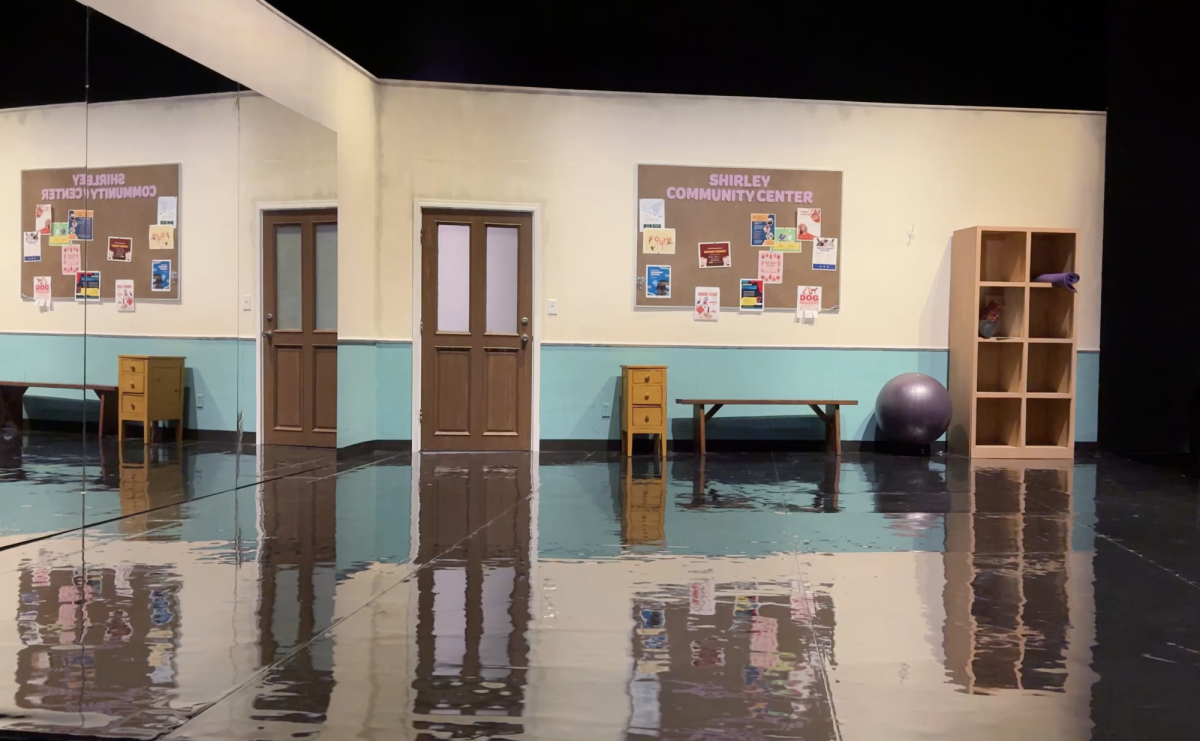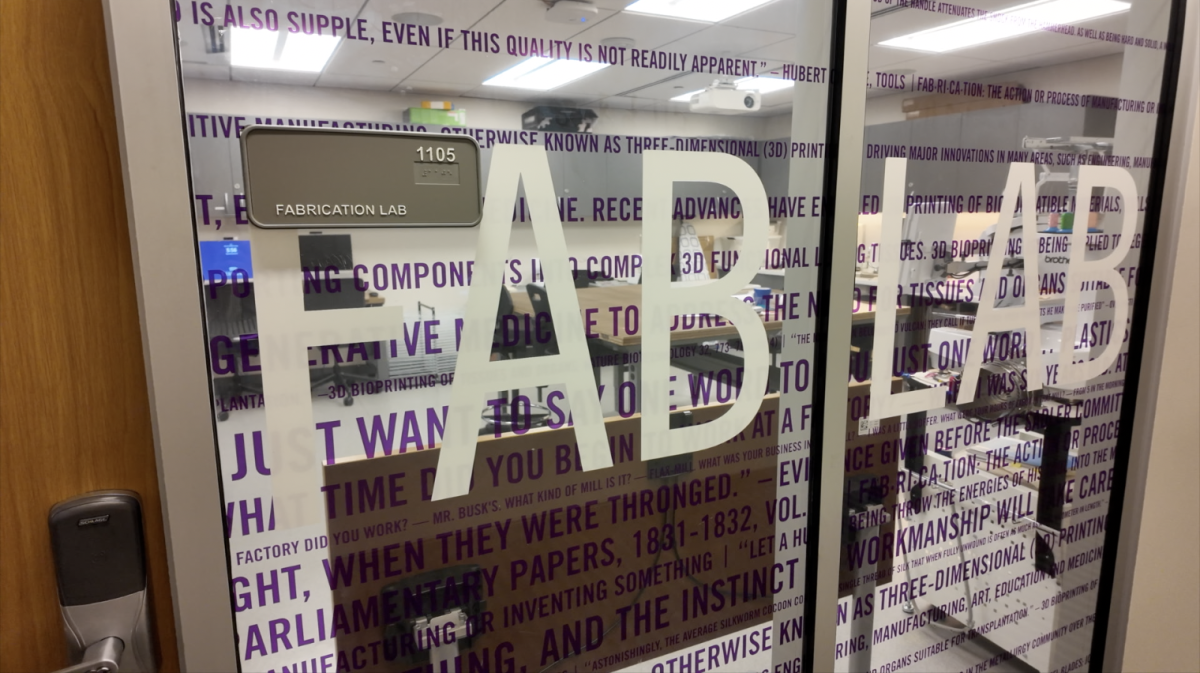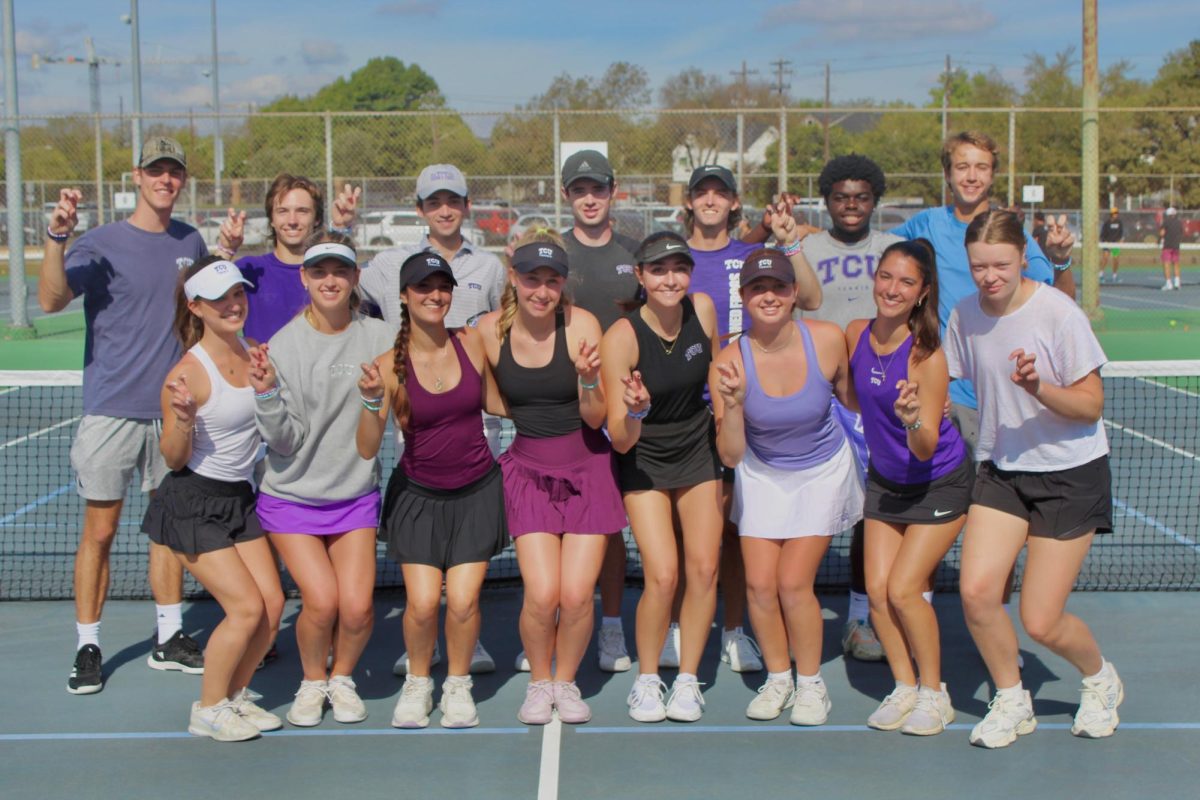Eighty percent of college students feel overwhelmed by responsibilities, 50 percent feel so anxious they struggle in school, one in four students have diagnosable mental health issues and 40 percent do not seek help, according to National Alliance on Mental Illness (NAMI). To help deal with this, the TCU Wellness Center reopened this fall with new outreach programs, peer educators and an updated space for students to study in. The new space has computers, desks, a Bluetooth TV and a whiteboard wall. The center was previously led by Dr. Kathy Cavins-Tull and is a new initiative on campus to promote students’ mental and physical well-being, said Yvonne Giovanis, assistant director of the Campus Recreation Department. Giovanis is now in charge of the center. Last year, the Wellness Center opened on campus after separating from Alcohol and Drug Education. The first year was a soft launch where they worked comprehensively with other departments on campus. However, they didn’t have their own outreach programs, peer educators or study spaces for students yet. Now the center houses faculty, full-time staff and student peer educators. The peer educators go to various places on campus and educate students about different aspects of health, said Jasmine Thompson, a senior peer educator. “College students have high-stress levels, and it’s a demographic where suicide is the highest,” she said. “Having a group of people who can reach students and help prevent them from committing suicide or reduce cases of depression is key.” The peer educators also do outreach events in the Campus Commons, Brown-Lupton University Union and residence halls, said Jena Littlefield, a sophomore peer educator. One outreach event they do is called the Wellness Wheel. [envira-gallery id=”1188562″] “We spin the wellness wheel to engage students in [wellness] topics,” she said. “We spin it and it lands on a topic of questions that we ask the students about.” Thompson said the outreach events are cool and different from other resources on campus like the Counseling & Mental Health Center or Campus Life because its goal is to prevent issues instead of reacting to them. Additionally, students go onto campus to educate peers instead of full-time staff and faculty. “We try to educate students on the front end of their experience and maybe catch them before they get stressed at midterms or finals,” Giovanis said. The center is located in the basement of the University Recreation Center and free for students to enjoy. For more information, visit this link.
Quiz Maker – powered by Riddle










